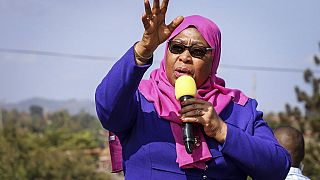Morocco
The debate over abortion has flared in Morocco after a 14-year-old identified as Meriem died following a clandestine pregnancy termination in a rural village.
The founder of the Moroccan Association Against Clandestine Abortion adds his voice to calls for the legalization of the procedure.
"It (abortion legislation) is an absolute emergency because we are witnessing the consequences of not being able to have legal abortions on a daily basis", Dr Chafik Chraibi said.
"You know about little Meriem who died this month, it was very well publicised, but there are many others and we can see the consequences that I mentioned: suicides, honour killings, doctors who go to jail, all of this. It's an urgent matter."
Unless a pregnancy endangers a woman's health, Moroccan women undergoing abortions face up to two years in jail, while those assisting them risk five years' imprisonment.
Meriem’s death comes seven years after a royal commission recommended decriminalizing the procedure in "cases" such as foetal malformation, rape or if the mother is mentally disabled. The gynaecologist believes political leaders should go beyond that.
"My plea to them is that there are people who are dying, there are victims who are collapsing every day, we need to pass a bill very quickly, not just for the four cases that we have discussed".
"I think that the simplest way would be to amend section 453 by taking into account health in its three components: physical, psychological and social."
A draft bill to modify the legislation has been presented twice to parliament before its withdrawal without official explanation.
The Families Minister told parliament last month that any changes in the penal code must "respect Islamic law and be acceptable to Moroccan society".
Abortion legislations in North Africa
The only North African state to allow women to choose an abortion is Tunisia, whose first post-independence president Habib Bourguiba legalised the practice in 1973, two years earlier than former colonizer France.
But there is little national debate on the subject, and most women who undergo the procedure keep it a secret.
A 2018 Algerian law provides for the "therapeutic termination of pregnancy", but rights groups note this requires a medical committee's approval and is limited to cases of mortal danger to the mother or if the baby is likely to be severely disabled.
Algeria otherwise can impose a two-year jail term for women who have an abortion, while doctors who facilitate terminations face five years.
Libya also criminalises abortions except when there is mortal danger to the mother and imposes long jail terms on those carrying them out.
Sentences are often reduced in cases where the procedure is undertaken to preserve the family's "honour". Libyan women with the means often seek abortions overseas.
Moroccan activist Faouzia Yassine says the kingdom's laws are a form of "judicial and social violence against women".
She called for a "root-and-branch reform of the penal code" and to bring it in line with "international conventions that Morocco has ratified".
"Criminalisation of abortions means restricting a woman's freedom to control her body and shows a desire to compel her to keep a foetus against her will," she said.











03:00
Morocco welcomes 2026 as AFCON enters knockout stage [Football Now]
03:00
AFCON 2025: Algeria leads Group E, Cameroon and Ivory Coast neck and neck [Football Now]
Go to video
2025 Africa Cup of Nations: A complete overview of the group stage
01:52
Zambia and Morocco brace for high-stakes AFCON group clash
03:00
AFCON 2025 heats up as Morocco, Egypt shine and fan zones come alive
00:37
AFCON 2025: Fans praise Morocco's organizational qualities